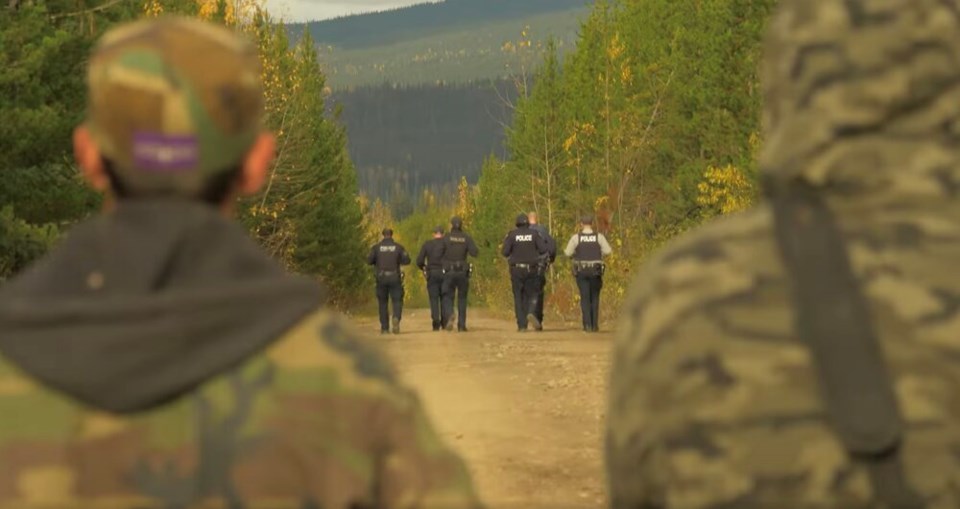Prominent environmentalist David Suzuki is walking back comments he made to a B.C. news outlet suggesting government inaction on climate change would inevitably lead to violence.
After a protest on Nov. 20 in Victoria, CHEK News asked Suzuki what would happen if government leaders did not properly address the climate crisis.
“We’re in deep doo doo,” he said. “And the leading experts have been telling us for over 40 years. This is what we’ve come to. The next stage after this, there are going to be pipelines blown up if leaders don’t pay attention to what’s going on.”
In a written statement released Thursday, Suzuki said his remarks were “poorly chosen.”
“Any suggestion that violence is inevitable is wrong and will not lead us to a desperately needed solution to the climate crisis,” he said. “My words were spoken out of extreme frustration and I apologize.”
The apology comes amid heightened tensions over the construction of the $6-billion Coastal GasLink pipeline being built through northern B.C.
Passing through traditional Wet’suwet’en territory, the pipeline is the biggest of its kind in Canada. When completed, it will connect gas fields in northeast B.C., with a massive processing facility on the coast. Critics say the pipeline and LNG terminal in Kitimat will make it impossible for B.C. to reach its emission reduction targets; the B.C. government maintains the massive gas project is tailored for a world shifting toward renewable energy, where “global markets are expected to favour lower-carbon natural gas producers.”
Last week, RCMP officers arrested several Indigenous land defenders, a journalist and documentary filmmaker near the shores of the Morice River, citing a breach of a court-ordered injunction.
The land defenders, who include several hereditary chiefs in opposition to the pipeline, have used non-violent protest to block work from continuing along the proposed route at various points since 2020.
Suzuki is not the first high-profile environmentalist to suggest the climate movement could escalate beyond peaceful protest. Prominent climate activist and Swedish lecturer Andreas Malm garnered international attention with a book he published in June titled “How to Blow Up a Pipeline,” in which he makes the argument that pacifist activism is reaching its limit.
“I am in favour of destroying machines, property — not harming people. That’s a very important distinction,” he told New Yorker editor David Remnick in September.
In one case in 2016, activists shut the valves on several cross-border pipelines running from Canada to the U.S., stemming the flow of millions of barrels of crude oil from Canada to the U.S.





